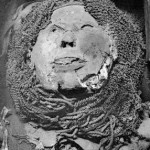
Queen Duathathor-Henuttawy (21st Dynasty), Wife of King Pinedjem I
By Kate Phizackerley. Published on Egyptological, In Brief. June 16th 2014 I have a fascination with the queens of ancient Egypt. If the popular literature is to be believed, only Hatshepsut and Cleopatra were of any particular interest, with other queens relegated to mere adjuncts to their husbands or fathers. I have previously written about […] [more…]
Recent Comments Back!
If like me you have been missing a way of seeing if there are any new comments you will be pleased to hear that the Recent Comments page is back and is on the sub-menu below the home (“Welcome”) page. At present it only shows a small snippet of the comment – I will keep […] [more…]
Editorial – Magazine Edition 10
A very warm welcome to Edition 10 of the Magazine. First, it is with enormous pleasure that we welcome back Brian Alm to the Magazine. Brian has penned a new series for Egyptological: “Read Like an Egyptian” — Art in Ancient Egypt. In Part 1 Brian begins with how art should be defined in the […] [more…]
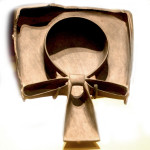
Read Like an Egyptian — Art in Ancient Egypt, Part 1
Probably only one percent of the ancient Egyptians were literate, and those literate few were royalty, nobility, upper-crust managers and administrators, at least some of the top military people, full-time priests and scribes. But many people could “read” what they were seeing, and understand it without knowing how to read hieroglyphs. The ideas and symbolic iconography were grounded in their culture; the art spoke to them even if their knowledge of the written text was, for the vast majority of the public, rudimentary at best — no doubt limited to a few basic glyphs. [more…]

Egyptologically Speaking: Interview with Dr Garry Shaw about his book “The Egyptian Myths”
In March 2014, Dr Garry Shaw’s new book was published in hardback. The Egyptian Myths: A Guide to Ancient Gods and Legends is Dr Shaw’s third sole-authored book, and his second aimed at the general public. An introductory guide to ancient Egypt’s myths, it does not duplicate existing books, offering instead a different way of approaching the central beliefs that made up Egypt’s formal religion. In this interview Dr Shaw discusses both his book and future projects. The questions were contributed by a number of readers, both from Egyptological and from Egyptological’s Facebook page, for which many thanks. [more…]
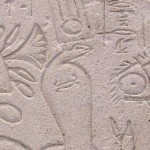
Meretseger: She Who Loves Silence. The Cobra Deity at Deir el-Medina
In the Western world the cobra rarely inspires sentiments of benevolence, warmth or good intentions. It is not a cuddly beast. Matters were more ambivalent in ancient Egypt where a range of wild animals were identified with deities imbued with admired values of physical strength, protection and courage, as well as less obviously admirable qualities like aggression, retribution, vengeance and retaliation. Like Sobek, the crocodile deity, and Sekhmet the lioness, the cobra deities comprised a mixture of attributes that centred on their fierce ability to defend themselves and to strike, hissing and spitting poison, to annihilate their aggressors. [more…]
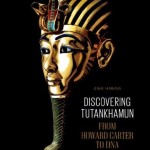
Book Review: “Discovering Tutankhamun – From Howard Carter to DNA” by Zahi Hawass
It is now some while since Zahi Hawass was finally ousted from office as Secretary General of the Supreme Council of Antiquities, following the fall of the Mubarak government in 2011; but his absolute ubiquity on TV programmes concerning ancient Egypt prior to that date (and the fact that these are repeated endlessly on various satellite/cable and terrestrial channels) means that there is little chance of any reader being unaware of his ebullient and bombastic presence. That presence is now reduced to occasional lectures about his former exploits, and adding to the series of published books that bear his name – of which this is the latest. [more…]
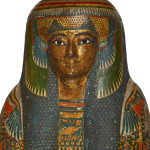
A visit to the British Museum’s exhibition “Ancient Lives. New Discoveries”
By Andrea Byrnes. Published in Egyptological, Magazine Reviews. 16th June 2014 Ancient Lives. New Discoveries British Museum Exhibition dates: 22nd May – 30th November 2014 Sponsored by Julius Baer; Technology Partner – Samsung When I arrived home after visiting and enjoying Ancient Lives, I found that a friend who has also visited the […] [more…]
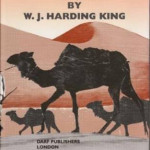
Book review – “Mysteries of the Libyan Desert” by W.J. Harding King
William Joseph Harding-King was educated at Trinity College, Cambridge. His first journey into the Sahara took place in 1900, after which he published his book In Search of the Masked Tawareks. He returned to the Sahara again in 1908 and then again between 1909 to 1912. His contributions to a number of journals represented a significant contribution of knowledge to desert studies and he was awarded the Gill Memorial Memorial Medal by the Royal Geographical Society in 1919. Mysteries of the Libyan Desert was considered to be his most important book. [more…]

Brian Alm’s decoder for Greek terms
Further to his previous article, Brian Alm has very kindly responded to a number of requests for a decoder for Greek terms by sending the following tables for readers. [more…]
 By
By